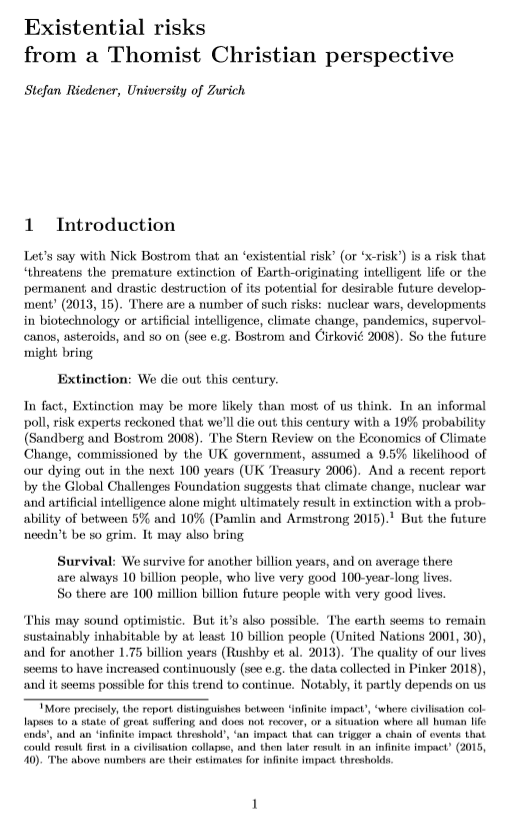Existential risks from a Thomist Christian perspective
Stefan Riedener (University of Zurich)
GPI Working Paper No. 1-2021, published in Effective Altrusim and Religion
Let’s say with Nick Bostrom that an ‘existential risk’ (or ‘x-risk’) is a risk that ‘threatens the premature extinction of Earth-originating intelligent life or the permanent and drastic destruction of its potential for desirable future development’ (2013, 15). There are a number of such risks: nuclear wars, developments in biotechnology or artificial intelligence, climate change, pandemics, supervolcanos, asteroids, and so on (see e.g. Bostrom and Ćirković 2008). [...]
Other working papers
It Only Takes One: The Psychology of Unilateral Decisions – Joshua Lewis (New York University) et al.
Sometimes, one decision can guarantee that a risky event will happen. For instance, it only took one team of researchers to synthesize and publish the horsepox genome, thus imposing its publication even though other researchers might have refrained for biosecurity reasons. We examine cases where everybody who can impose a given event has the same goal but different information about whether the event furthers that goal. …
Simulation expectation – Teruji Thomas (Global Priorities Institute, University of Oxford)
I present a new argument for the claim that I’m much more likely to be a person living in a computer simulation than a person living in the ground-level of reality. I consider whether this argument can be blocked by an externalist view of what my evidence supports, and I urge caution against the easy assumption that actually finding lots of simulations would increase the odds that I myself am in one.
How to resist the Fading Qualia Argument – Andreas Mogensen (Global Priorities Institute, University of Oxford)
The Fading Qualia Argument is perhaps the strongest argument supporting the view that in order for a system to be conscious, it does not need to be made of anything in particular, so long as its internal parts have the right causal relations to each other and to the system’s inputs and outputs. I show how the argument can be resisted given two key assumptions: that consciousness is associated with vagueness at its boundaries and that conscious neural activity has a particular kind of holistic structure. …

